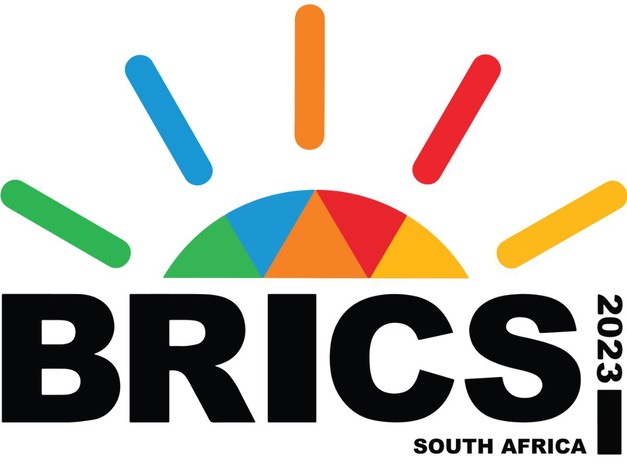Erosion of foreign currency reserves, Egypt's allies to the rescue
At the beginning of this month, the Central Banks of the United Arab Emirates and Egypt agreed to a currency exchange deal, intended to bolster the struggling Egyptian economy. A joint news release said the agreement would allow the two central banks to exchange up to 5 billion Emirati dirhams and 42 billion Egyptian pounds, or roughly the equivalent of $1.36 billion.
While currency swaps between Gulf countries and Egypt, and more broadly financial aid to Egypt from the Gulf, are not uncommon and have reached $100 billion since 2013, they do reflect the extent of the monetary crisis in Egypt, whose economy has been slowed by the erosion of foreign currency reserves and the devaluation of the Egyptian pound against the US dollar.
Agricultural trade is particularly vulnerable
The impact on agricultural exports is significant. Last season, price fluctuations for many crops - citrus, onions, potatoes, and other important exported crops - were almost a daily occurrence, in a seemingly price war fueled by exchange rate differentials and cutting into exporters' margins.
Another side effect of the currency crisis on the agribusiness sector is the export regulations. In order to contain the erosion of foreign currency reserves, the government requires importing companies to have an export activity that enables them to drain foreign currency. The link with the agricultural sector is that a significant number of importers choose to export fresh produce in order to adapt to these regulations, and one can imagine the impact of "parasitic" players intruding into the ranks of legitimate exporters.
BRICS membership is favorably received by exporters
Then came the big announcement: Egypt has been invited to join BRICS. The news was greeted with a great deal of enthusiasm by agribusiness actors and exporters in general. To understand how joining BRICS will help agricultural exporters, we spoke to economic analyst Khaled Al-Sayed, author of "Hakawi Fi Elbusiness" (Business Stories), a column devoted to Egyptian international trade and currency monitoring, and followed by a large number of Egyptian and Arab exporters.

Going back to D-Day, August 23, 2023, few expected Egypt to become a member of the BRICS given the country's difficulties. Khaled says, "Many have suggested that Egypt has a very thin chance to join BRICS due to the current delegate economic situation, but this is not how such critical political and economic decisions are made. China is very interested in expanding in Africa, and Egypt can represent a great chance as a major entrance towards the continent due to its rich resources and high percentage of educated youth, not to mention its geographical advantage and industrial expertise. Russia is looking to Egypt as well as an important ally politically and economically."
In the short term, BRICS membership may boost trade volumes
The surprise was immediately followed by celebrations and enthusiasm among exporters and other business players, who shared their delight on TV shows and Linkedin. For Khaled, this enthusiasm is entirely justified: "Imagine this: the BRICS countries account for a third of Egypt's trade, despite Egypt's scarcity of US dollars. Take the US dollar out of the equation and you will see the bigger picture, Egypt is expected to transfer a huge amount of the other two-thirds of its trade to the BRICS countries as international trade shall take place with national currencies instead of the USD. This should be great news to exporters as they will be able to work free from the current extreme currency boundaries that are limiting their abilities."
Khaled continues, "The way I see it, joining BRICS can be an opportunity for the Egyptian economy in all sectors for many reasons. Many Egyptian industries are affected by the scarcity of the US dollar as many production requirements are imported. Starting next year this challenge can be solved, as new allies from BRICS have already shown interest in investing in Egypt by opening new factories in different industries. Investing will transfer the know-how to Egypt and create a new hub that was long awaited to take place."
The agricultural sector is particularly concerned by the prospects for increased trade between Egypt and the BRICS countries, at a time when climate change and geopolitical tensions are putting food security back at the top of governments' agendas. "Despite challenges of climate change that are affecting the whole world, Egypt has been the main source of fruits and vegetables for many BRICS countries," says Khaled. "Last year Russia alone had imported fruits and vegetables from Egypt worth 600 million USD. With the new trade facilitation following the alliance, I expect this number to grow rapidly. The success achieved with Russia will be replicated with other BRICS countries as well. I assume citrus exports to Russia, for instance, will be paid in rubles in the future, which Egypt can use to supply our grain trade with Russia as well, but I would like to highlight the importance of working on our agricultural industries, such as developing the production of citrus juices and jams for example, alongside exports of raw citrus, in order to achieve higher value."

The benefits in terms of currency stability will not be seen overnight
Beyond the yet to be materialized hopes and the limited impact of BRICS membership in the short term, mere membership means little until the tools for its implementation are established, especially monetary tools that are needed to solidify the Egyptian pound's rate. Khaled says, "The definition of the rules that will value the exchange rate between BRICS respective currencies is the real question. The Egyptian central bank is currently preparing a currency basket that shall include the USD, EUR, and other currencies in addition to gold. This makes us wonder, what are the role that the New Development Bank, or as it is called the "BRICS bank" will draft to define currencies value?"
The most optimistic observers can therefore only hope for an improvement in volumes shipped to the BRICS countries, markets which - let's not forget - are already of great importance to Egypt. However, Khaled reckons that it will take no less than 10 years to measure the real impact of BRICS membership. He explains, "I believe many things are taking place at the moment to prepare for the dawn of the new expansion in 2024; policies are drafted, procedures are being discussed, and even main guidelines still need to be agreed on. From the Egyptian side, I understand that the government is establishing a “BRICS Unit" in the Council, which is charged with cooperation files with the BRICS group, and its membership includes relevant ministers and officials. This unit will review all the work instruments with member states and will determine alongside the investment authority which projects can be submitted to the BRICS in the coming period. From my point of view, We need at least 10 years between defining a strategy and implementing the tools needed to achieve it at an intra-BRICS level."
For more information:
Khaled Al-Sayed
Business Stories (Hakawi Fi Elbusiness)
Tel: +20 109 044 0929
Email: khaled.eg@gmail.com
www.linktr.ee/khaled_al_sayed
